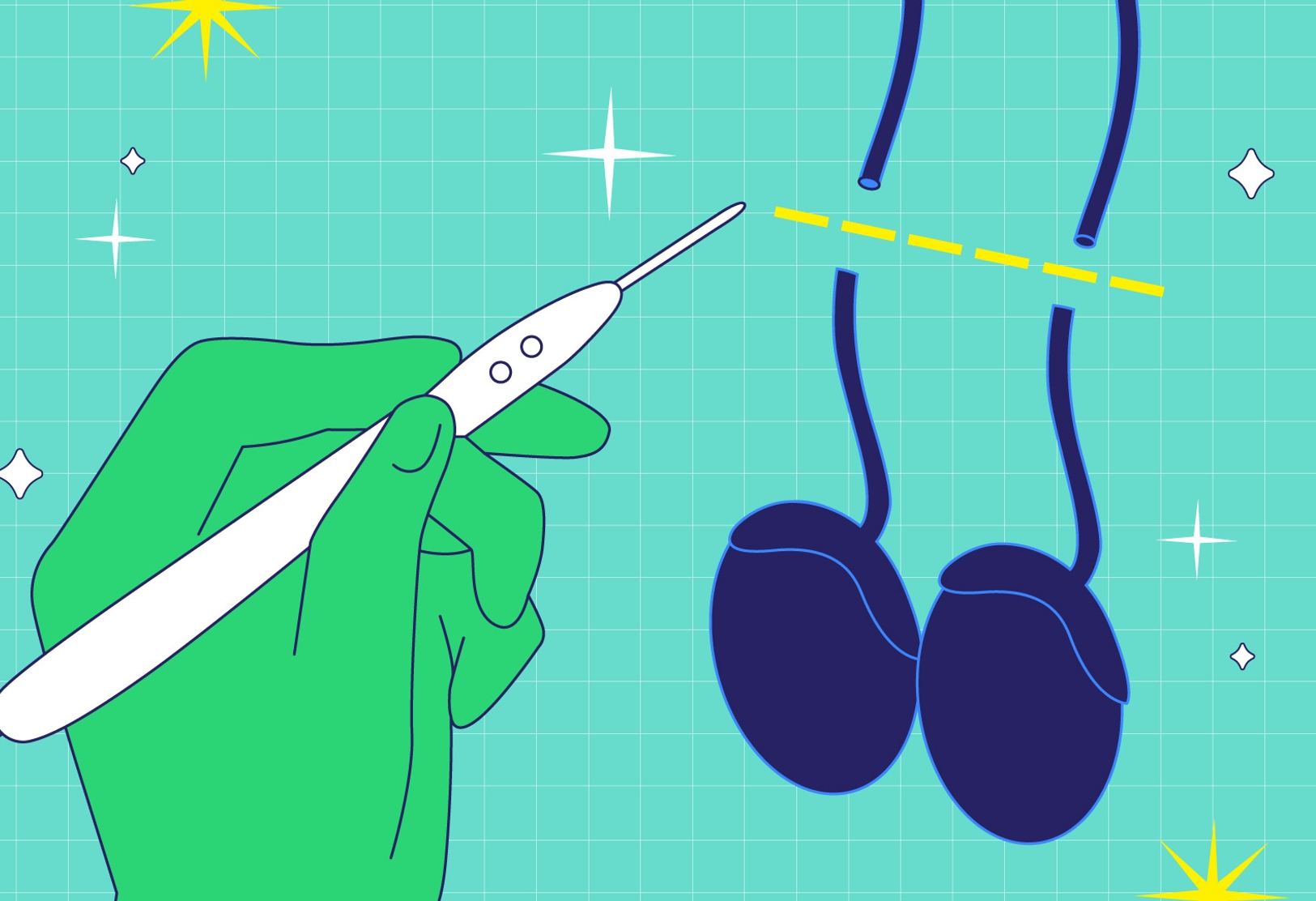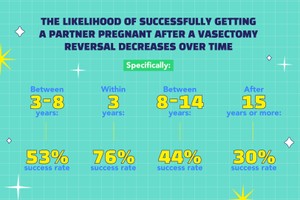Deciding on a vasectomy can bring a whirlwind of questions. That’s why we’ve put together these straightforward FAQs. Whether you’re contemplating the procedure or just curious, we’re here to help you navigate through the essentials of this contraception method. Dive in, and let’s get those questions answered.
What is a vasectomy?
A vasectomy, also known as male surgical permanent contraception, is a birth control method. During a simple surgical procedure, a tube called the vas deferens, which carries sperm from the testicles to the urethra is cut or blocked. This stops sperm from reaching the semen and protects against pregnancy. To find out more about the different types of vasectomy, read our guide to permanent contraceptive methods.
How effective is a vasectomy?
A vasectomy is the most effective male contraception method available. However, there is an extremely small, but real risk of pregnancy after a vasectomy.
Research has shown that there are approximately 1-2 unplanned pregnancies per 1000 vasectomies making the success rate 99.9%1. This means that vasectomy is more effective than most other available contraception methods except for strict abstinence.
How long does it take to recover from a vasectomy?
A vasectomy is a relatively short, minor operation and as a result, most men only need a few days to recover. It’s advised to refrain from sex, ejaculation, exercise, and heavy lifting for about a week after the procedure. You can shower after the operation, but bathing and swimming should be avoided for a week.
Is a vasectomy effective straight away?
We get it, you’ve recovered from the operation, and you want to enjoy this new chapter in your sex life. When can you get the green light?
Experts advise that you should not ejaculate (this includes masturbation) for a week after the procedure so you should hold off for at least a week.
What’s more, you won’t be sterile immediately after the procedure. Your doctor will need a post-vasectomy semen analysis (PVSA) to check for azoospermia, or the absence of sperm. Until then, you and your partner should use other methods of birth control.
Will a vasectomy protect me against sexually transmitted infections?
No. Although a vasectomy is a highly effective form of birth control, it’s important to know that it does not protect against sexually transmitted infections. Only barrier contraceptives like condoms can provide effective protection against sexually transmitted infections.
Is a vasectomy safe?
A vasectomy is a safe, non-invasive surgical procedure with a high success rate and a low complication rate. The most common complications are bruising, pain and infection around the operation site, around 1-2% of men will experience these. Chronic, ongoing pain in the scrotum can occur in 1% of men, too. Though more serious complications exist, these are extremely rare, and your doctor will talk to you about these before your operation.
Is a vasectomy painful?
A vasectomy typically involves some discomfort, but most people describe it as mild. Local anesthesia is used to numb the area, reducing pain during the procedure. Afterwards, there may be some soreness or swelling. You’ll be able to go home the same day and any pain can be managed with over-the-counter pain relievers and rest.
Is a vasectomy reversible?
Life happens. So, what if you’re in a new relationship? Or your pregnancy goals change? Is it possible to reverse the procedure? Well, technically, yes. Though designed to be permanent, a vasectomy is reversible but with varying degrees of success.
This depends on factors like:
- When you had the surgery
- The type of vasectomy
- The type of reversal surgery
Research indicates that the likelihood of successfully getting a partner pregnant after a vasectomy reversal decreases over time.
Specifically:
- Within 3 years of the surgery: 76% success rate
- Between 3-8 years: 53% success rate
- Between 8-14 years: 44% success rate
- After 15 years or more: 30% success rate
This means that if you aren’t certain that a vasectomy is an acceptable permanent solution for you, it might be best to consider your options.
Do you have something to share? Contact us on our social media platforms: Facebook, Instagram, Twitter, YouTube and TikTok, or send us an email to info@findmymethod.org. For more information on contraception, visit findmymethod.org.
References:
1. Jamieson DJ, Costello C, Trussell J, Hillis SD, Marchbanks PA, Peterson HB, et al. The Risk of Pregnancy After Vasectomy. Obstetrics & Gynecology. 2004;103(5 Part 1):848-50.
2. Stormont G, Deibert CM. Vasectomy. StatPearls. Treasure Island (FL) ineligible companies. Disclosure: Christopher Deibert declares no relevant financial relationships with ineligible companies.: StatPearls Publishing
Copyright © 2023, StatPearls Publishing LLC.; 2023.
3. Sharlip ID, Belker AM, Honig S, Labrecque M, Marmar JL, Ross LS, et al. Vasectomy: AUA guideline. J Urol. 2012;188(6 Suppl):2482-91.
4. Belker AM, Thomas AJ, Jr., Fuchs EF, Konnak JW, Sharlip ID. Results of 1,469 microsurgical vasectomy reversals by the Vasovasostomy Study Group. J Urol. 1991;145(3):505-11.


